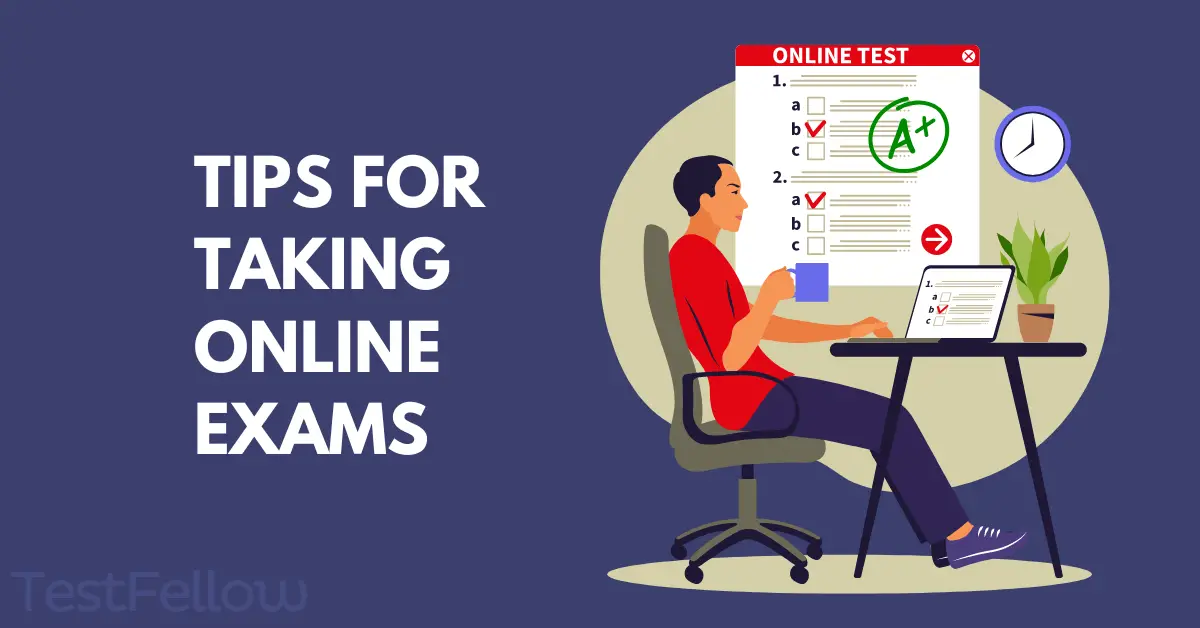Online test-taking can be a different experience than taking a test in a traditional classroom setting. It is important to be aware of some effective tips and strategies for taking online exams, and how to prepare a good test-taking environment to ensure success. Below you will find tips for how to prepare before your online exam, things to keep in mind as you take your test, and suggestions for after you have finished.
Before taking the online test:
Before you start your online test, it is important to be well-prepared to ensure that you have the best chance of success. Here are some things to consider:
- Read and understand the test guidelines: Make sure you know the details of the exam, including the date, time, and time limit. If the test is available for a few hours or days, choose a time that works best for you.
- Know the test format: Understand what types of questions the instructor will use on the exam, such as multiple-choice, fill-in, short answer, or essay.
- Study for the test: Even if the test is “open book,” it is still important to study and review the material as if you were taking the test in a classroom. If practice tests are available, use them to study.
- Check your hardware: Ensure that your computer is charged, working, and has any necessary software downloaded. Make sure your Wi-Fi connection is stable. Have a backup internet plan in case of technical issues.
- Create a quiet place to take the test with minimal distractions: Turn off all distractions, such as TV, phone, email, and notifications. Let your roommates or family know that you’ll be taking a test to minimize interruptions.
- Gather allowable testing materials: If permitted, have notes, books, or writing supplies near you.
- Take a deep breath: When it’s time to start, a deep breath can help release tension and promote relaxation.
During the Test:
As you take the online test, there are several things to keep in mind to ensure that you are successful:
- Keep an eye on the clock: Know how much time you have and keep track. Set alarms or timers if helpful.
- Don’t leave the test page: If you are allowed to use outside sources, use a different browser or tab than your test to avoid losing your work.
- Technical problems: If you encounter any technical issues, don’t panic. Take a screen shot and contact your instructor immediately.
- Re-read directions and word problems: Take the time to understand the question or problem and each of the possible answers (for multiple choice) to make sure you have all the information.
- Condense the content: Look for keywords and try to rephrase complicated questions in your own words to make sure you understand the essence of the question.
- Don’t try collaborative cheating: Do not share answers with peers or use test sharing sites. Instructors can use Blackboard to detect patterns and check essays for plagiarism.
- Check your work before you submit it: Make sure that the answers recorded in the test are what you intended them to be. Make sure no question is left blank. Proofread any written work.
- Click submit: Make sure to submit your test when you are finished. Only click the submit button once.
After the Test: Reflecting on Your Online Test Performance
After completing an online test, it is important to reflect on your performance and consider what you can do differently in the future. Here are some steps to take:
- Reflect on your performance: Consider how you believe you did on the test. Were there any questions that you found confusing or that you had to skip? Try to find the answers to the questions that you found challenging and think about what you could do differently next time.
- Check your grade: Even if your grade is available immediately, make sure to review the full exam and any missed questions, as well as any instructor feedback.
- Request feedback: Review the provided instructor feedback carefully. If you have any additional questions or concerns, don’t hesitate to contact your professor. You can email them or set up an appointment, even in a fully asynchronous online course. Discussing your results can help you learn the material more deeply and prepare better for future tests.
Conclusion
In conclusion, taking online tests requires careful preparation and attention to detail. By following the strategies and tips outlined in this article, you can set yourself up for success on your online exams. Make sure to read and understand the test guidelines, study for the test, prepare a quiet and distraction-free environment, and keep an eye on the clock as you take the test. After the test, be sure to reflect on your performance, check your grade, and request feedback from your instructor to further improve your test-taking skills.
By following these tips, you can confidently approach your online exams and achieve your best possible results. Best of Luck!
Related Articles:
- Top 10 Tips to Prepare for a Psychometric Test
- How to Pass an Aptitude Test: Top 10 Effective Tips
- How to Prepare for Personality Tests: 10 Expert Tips
- How to Answer Multiple Choice Questions: 10 Tips
- The Ultimate Guide to Online Test Preparation
- Tips to Pass an Analogies Test
- 12 Effective Test Preparation Tips for Students

